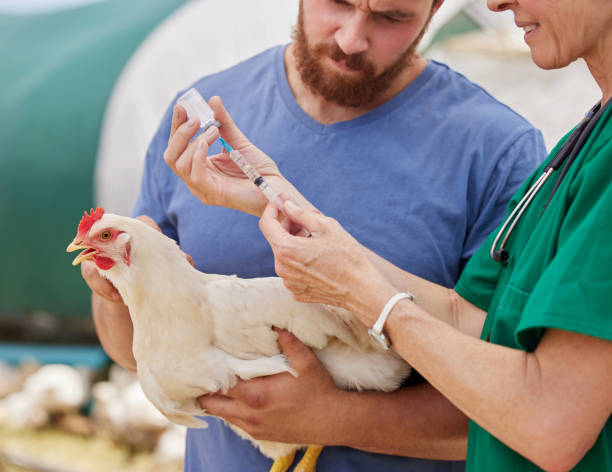Injuries and Illnesses in your Pet Bird- Home Remedies

The care of pet birds requires knowledge of their needs, from a proper diet to adequate sanitation. Of course, there are serious health problems requiring professional veterinary care, but other minor problems can often be treated in the home with very simple remedies.
Wellness for Pet Birds:
Naturopathy offers a guide to common health issues facing pet birds, suggesting natural, simple and effective remedies, without becoming too dependent on medication.
Maintaining Hydration
Birds are particularly susceptible to dehydration, particularly in hot weather or during periods of illness. It is essential to ensure access to clean, fresh water.”
If a bird appears dehydrated lethargy, dry skin or other obvious symptoms of dehydration you can place a few drops of coconut water or an electrolyte solution made for birds. Skip human electrolyte drinks, as many contain unnecessary (and potentially harmful) ingredients.
How to Use Apple Cider Vinegar as an Immunity Booster
Apple Cider Vinegar (ACV) ACV is a versatile home remedy that benefits your bird’s overall health. This boast natural antibacterial and antifungal properties.
A couple of drops of apple cider vinegar (ACV) mixed into your birds drinking water once or twice a week can help support their immune systems and keep their guts humming along. Always dilute it: about one teaspoon per liter of water, and watch your bird to see if they accept the taste.
Alleviating Airway and Respiratory Discomfort
Dust, inadequate ventilation or sudden changes in temperature can cause respiratory problems in birds. If your feathered friend is sneezing or seems to be having difficulty breathing, you can try steam therapy.
Put the bird in the room where a pot of warm water is steaming gently, but don’t place it too close or risk over-heating. You can also add a drop of eucalyptus oil to the water to soothe the process even more.
Aloe Vera Treatment for Minor Wounds
Aloe vera fresh gel can be applied to small cuts or scratches on your birds’ skin. Now Aloe Vera is a natural antiseptic and promotes healing.
Dip a cotton swab in some pure chemical-free aloe gel and apply a thin layer of it to the specific spot. Don’t use products containing alcohol or additives, as these can irritate a bird’s delicate skin.
Relaxing Stress with Chamomile
Birds can pluck their feathers, become restless or eat differently when stressed. Chamomile tea — The supposed relaxing tea may lower your stress levels.
Brew a weak chamomile tea, allowing it to cool, and serve to your bird instead of regular water once a week. Or take it a step further and mist it onto your bird’s feathers during bath time for an added relaxing effect.
Aiding Digestion with Pumpkin Seeds
Pumpkin seeds are a natural digestive aid and are known to combat internal parasites.
They have compounds that help the bird expel parasites, without causing the bird any harm. Feed them some raw, unsalted pumpkin seeds as a treat ( They are high in magnesium zinc and iron) Make sure they are ground or cut sized to small pieces for little birds.
Building Feather Superpower With The Power of Coconut Oil
Birds with dry or damaged feathers are uncomfortable and often scratch. A natural moisturizer that has many benefits for working on feather quality.
Rub a small bit of organic, virgin coconut oil between your fingers and gently coat the bird’s dry feathers with it. Do not overuse: Moisture will attract dust if there is too much oil.
Using Probiotics to Treat Mild Diarrhea
Dietary changes or stress may cause birds mild digestive upset. Despite, it might be utilized help return to the healthy gut balance.
Once a week, you can sprinkle some plain, unsweetened yogurt into a bird’s food. You can also purchase bird-specific probiotic powders at pet stores.
Making Activity More Attractive to Prevent Obesity
Obesity due to lack of exercise is a common problem in pet birds and leads to other health issues.
Create an enriching environment with toys, perches, and opportunities for the bird to fly or move around safely to keep a bird active. A fun and engaging environment makes it so that you can have a healthy weight without needing to go on a diet.
7 Natural Ingredients to Clean the Beak
A bird’s beak can collect debris, which could cause discomfort or infection.
And cleaning the beak gently with a soft cloth dampened with a bit of water and a drop of lemon juice can help it stay healthy. Do not use harsh chemicals, nor excessive force during cleaning.
Preventive Care is Key
Home remedies can help alleviate minor problems, but the best way to keep your bird healthy is to prevent those issues in the first place. Some general advice to help reduce the risk of common problems:
Clean Cage:
Cleaning the cage often prevents bacteria and fungus growth.
Diet:
Needs differ per species / a good balanced diet should offer seeds, fresh fruit/vegetables.
Ensure there is Adequate Ventilation:
Proper air circulation prevents respiratory diseases in birds.
Routinely Observe:
Give it a look over most days; take note of your bird’s behavior, appetite and stools in order to catch earliest indicators of illness.
When to Go to the Vet
Home remedies help manage minor problems but there are times when you need to seek professional help. If your bird Seek immediate veterinary help Never ignore these.
Demonstrates symptoms of extreme illness such as difficulty breathing or extreme lethargy.
Has suffered persistent symptoms despite finding something that works.
Sustains a serious injury
Addressing minor health issues with natural and safe solutions improves your bird’s quality of life.
These remedies, when used in conjunction with proper preventive care and regular vet visits, can help your feathered friend live healthily and happily for years to come.
